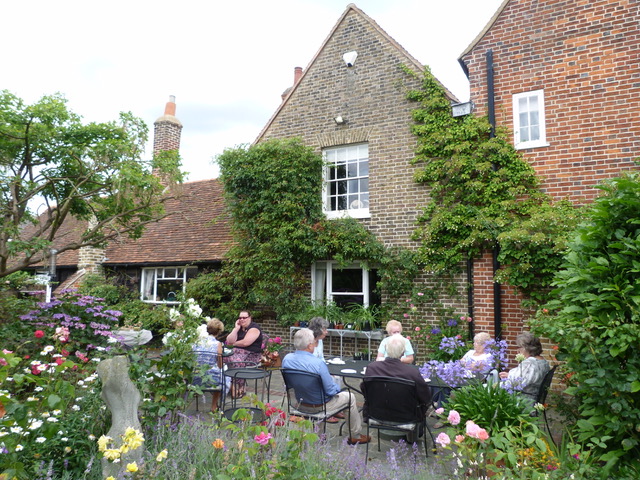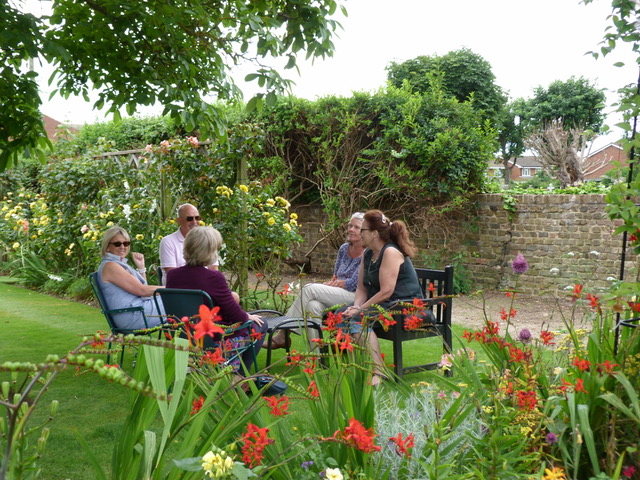‘Don’t walk behind me; I may not lead. Don’t walk in front of me; I may not follow. Just walk beside me and be my friend’ – by Albert Camus
I am blessed with an amazing circle of friends. The other night I met the friends that I have known for more than a quarter of a century, when we were studying with the Open University and a group of us set up a “Self-help group”. We met weekly to discuss the latest chapter and without them I would never have completed the course. The number of times I would dash into the session without having even looked at the course notes, and sit hastily flicking through the textbook and trying to catch up. Four years later, each a proud possessor of a BA (Hons), we decided to keep meeting and we remain friends and gather regularly to catch up and ‘put the world to rights’.
Before Christmas I met friends from the school where I taught – so we have known each other for – mmm, let me see: 1977 to 2000 is 23 plus 17= 40 – FORTY years. Blimey! I do not feel forty years older. Over the years we have watched each other’s families grow, go off to university/start work, leave home and start families of their own. And out of that friendship group is a sub-set of friends that I see more often because of shared mutual interests: theatre, walking and cinema – even though I have to travel half way across the country to catch up with the friend who moved to the Cotswolds.
Then there are my neighbours, with most of whom I am on ‘nodding terms’ and with some of whom I am friends. Why? What makes the difference? I have no idea! How do you know who your friends are? To me, friends are people whose company I enjoy and who I want to see again . . . and we can disagree without it changing our friendship – thank goodness. When one of my best friends gives me advice, I suspect she knows that I will stubbornly ignore her advice until it suits me. She was the one who commented that working as a private tutor would be perfect for me – advice I eventually followed after early retirement. And she was right.
I feel so privileged that my friends are all ages. One of the depressing aspects of being a senior is being labelled and stuck in the wrinkly group of has-beens. The media often represents pensioners as doddery old dears with very narrow outlooks and limited conversations. Not sure why. The other Saturday I am afraid to admit that I was guilty of similarly relegating the group of knitters seated around the table at a “Knit and natter” session to the “old dear” group. However, I sat with them and quickly recognised my error. Maybe that is how you make friends? Join in, listen and do not make prior judgments.
Last but not least there are “Facebook Friends”, a really deceiving misnomer if ever there was one. Far better to call them “Facebook Followers”. A sad indictment of today’s digital society is the number of people tapping away on their electronic devices, anxiously counting the number of “likes” achieved by their latest posts. If media articles are to be believed, the nation is losing the ability to socialize. I simply cannot imagine a World where people would prefer to sit in a lonely room staring at a screen to sharing the latest gossip with a real human being over a drink
Are there rules for making friends? Not exactly – more likely that there are rules for losing friends – or rather, not losing them! Commentators waxing lyrical about “the good old days” will go on and on about how neighbours were always in and out of each other’s homes. Well! Maybe that happened then but it is not to be recommended today’s busy world. Better to text and check that the friend is free. It is great to be spontaneous but better to be tactful. Rather than just turning up in the doorstep I send a text, “Can I pop over for a cuppa and catch-up. Now? Later?” It saves a deal of embarrassment when the answer is “later”.


 Follow
Follow
Nice blog I agree with so much of what you have to say. I think having a mixed bunch of friends is a very good thing,as with everything, variety is key to an interesting lifestyle leading to an understanding and tolerance of different points of view.
An understanding and tolerance of different points of view is very important – and sadly often lacking in today’s populace.